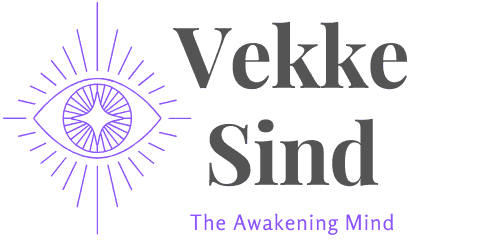Astrology and astronomy are two words that are often used interchangeably, but they are actually quite different.
Astrology is the study of how the positions of celestial bodies can influence human affairs, while astronomy is the scientific study of celestial objects and phenomena. Despite their differences, the two disciplines have a long and intertwined history.
Astrology dates back to ancient times, when people believed that the positions of the stars and planets had a direct impact on their lives.
The practice of astrology was often intertwined with religion and mythology, and it was used to predict everything from the weather to the outcome of battles.
Astronomy, on the other hand, was also practiced in ancient times, but it was more focused on observing and recording the movements of celestial objects. Despite their different focuses, astrology and astronomy were often practiced by the same people, and they were seen as complementary disciplines.
Today, astrology and astronomy have evolved into two distinct fields with different goals and methods.
Astronomy is a natural science that seeks to understand the universe through observation and experimentation, while astrology is considered a pseudoscience that relies on subjective interpretations of celestial positions.
While the two disciplines may share a common history, they have diverged significantly over time.
Table of Contents
The Ancient Ties: Astrology and Astronomy

Astrology and astronomy have had a long and intertwined history, with their origins dating back to ancient civilizations.
In this section, we will explore the ancient ties between astrology and astronomy, focusing on their development in ancient Babylonia and Mesopotamia, as well as ancient India and the Middle Ages.
Astrology in Ancient Babylonia and Mesopotamia
Astrology originated in Mesopotamia, in the third millennium BCE. The Babylonians, who were skilled astronomers, believed that the positions and movements of celestial bodies could influence human affairs and destinies.
They developed a complex system of astrology, which involved observing the movements of the Sun, Moon, and planets, and interpreting their meanings.
The Babylonians divided the sky into twelve equal parts, corresponding to the twelve signs of the zodiac.
Each sign was associated with a particular planet and had its own set of characteristics and meanings. Astrologers used this system to cast horoscopes, which were used to predict future events and guide decision-making.
Astronomy in Ancient India and the Middle Ages
In ancient India, astronomy and astrology were closely linked. The ancient Indians believed that the movements of celestial bodies could reveal the secrets of the universe and provide insights into human affairs.
They developed a sophisticated system of astronomy, which included the use of mathematical calculations to predict the movements of the Sun, Moon, and planets.
During the Middle Ages, astronomy and astrology continued to be closely linked, with many scholars believing that the movements of celestial bodies could influence human affairs.
Greek philosophers such as Anaximander, Aristotle, and Ptolemy contributed to the development of astronomy and astrology during this time, with Ptolemy’s work on the geocentric model of the universe being particularly influential.
In conclusion, astrology and astronomy have a long and intertwined history, with their origins dating back to ancient civilizations.
Astrology in ancient Babylonia and Mesopotamia, as well as astronomy in ancient India and the Middle Ages, were closely linked and played important roles in shaping our understanding of the universe and our place in it.
The Celestial Connection

Astrology and astronomy both deal with the study of celestial objects, but they approach the subject in very different ways.
Astronomy is a natural science that focuses on the physical properties of celestial objects, while astrology is a humanistic science that attempts to interpret the influence of celestial objects on human affairs.
Despite their differences, there is a strong connection between the two fields, particularly when it comes to the study of constellations, the zodiac, and celestial bodies.
Understanding Constellations
A constellation is a group of stars that form a recognizable pattern in the sky. Humans have been observing and naming constellations for thousands of years, and they have played an important role in both astronomy and astrology.
In astronomy, constellations are used to locate and identify celestial objects, while in astrology, they are used to interpret personality traits and make predictions about the future.
The Zodiac and Astrological Signs
The zodiac is a band of constellations that lies along the ecliptic, the path that the Sun appears to follow across the sky. In astrology, the zodiac is divided into 12 equal parts, each corresponding to one of the astrological signs.
These signs are said to represent different personality traits and are used to make predictions about a person’s future based on their birth date.
Planets and Celestial Bodies
In both astronomy and astrology, planets and other celestial bodies play an important role. In astronomy, planets are studied for their physical properties, such as their size, composition, and orbit.
In astrology, planets are believed to have an influence on human affairs, with each planet being associated with different personality traits and life events.
For example, Mars is associated with energy, passion, and aggression, while Earth is associated with stability, grounding, and practicality. Other celestial bodies, such as the Moon and the Sun, also play important roles in both fields.
Overall, the study of celestial objects has been an important part of human history, and it continues to be a fascinating subject for both astronomers and astrologers alike. While the two fields approach the subject in very different ways, they both share a deep appreciation for the beauty and complexity of the universe.
Astrology: Interpretation and Predictions

Astrology is an ancient practice that has been around for thousands of years. It is a pseudoscience that claims to use the positions and movements of celestial bodies to predict and interpret human affairs and natural phenomena.
Astrology is based on the idea that there is a connection between the patterns and movements of the planets and stars and events on Earth.
The Horoscope Chart
The horoscope chart, also known as the birth chart or natal chart, is a map of the sky at the moment of a person’s birth.
It shows the positions of the planets, the Sun, and the Moon in relation to the 12 astrological signs and the 12 astrological houses. The horoscope chart is used to interpret a person’s personality, strengths, weaknesses, and life path.
Astrological Houses and Aspects
The astrological houses represent different areas of a person’s life, such as career, relationships, and health. Each house is ruled by a different sign and planet, and the position of the planets in the houses can reveal important information about a person’s life.
Astrological aspects are the angles between the planets and the horoscope chart. They can indicate the strengths and challenges in a person’s life and relationships.
Symbolism and Meaning in Astrology
Astrology uses a rich symbolism to interpret the movements and positions of the planets and stars. Each astrological sign is associated with different qualities and characteristics, such as Aries with courage and leadership, Taurus with stability and sensuality, and Gemini with communication and adaptability.
The planets are also associated with different energies and meanings, such as Mars with action and passion, Venus with love and beauty, and Saturn with responsibility and discipline.
Astrology claims to provide insight into a person’s personality, relationships, and future. However, its accuracy and scientific validity are widely debated. While some people find value in astrology, others dismiss it as a pseudoscience.
Astronomy: The Science of the Universe

Astronomy is the scientific study of celestial objects and phenomena beyond the Earth’s atmosphere. It is one of the oldest sciences, dating back to ancient civilizations like the Babylonians and Egyptians.
Astronomy has come a long way since then, and today it is a highly sophisticated field that uses advanced technology and scientific methods to explore the universe.
Scientific Method in Astronomy
Like all sciences, astronomy relies on the scientific method to make observations, test hypotheses, and draw conclusions. Scientists use a combination of observations, experiments, and theoretical models to better understand the universe.
They make observations of celestial objects and phenomena, collect data, and analyze it using mathematical and statistical methods. This helps them form hypotheses, which they test using experiments and further observations.
Telescopes and Celestial Objects
Telescopes are the primary tool used by astronomers to observe the universe. They allow scientists to see objects that are too far away or too faint to be seen with the naked eye. Telescopes come in many different types, including optical, radio, and X-ray telescopes.
Astronomers study a wide range of celestial objects, from stars and planets to galaxies and black holes. They use telescopes to observe these objects and gather data on their properties, such as their mass, size, temperature, and composition.
They also study the movements and interactions of celestial objects, such as the orbits of planets around stars and the collisions of galaxies.
Theories and Discoveries
Over the centuries, astronomers have made many important discoveries and developed theories to explain the workings of the universe. Some of the most famous astronomers include Isaac Newton, Galileo Galilei, and Johannes Kepler.
Isaac Newton developed the laws of motion and gravity, which helped explain the movements of celestial objects. Galileo Galilei was the first person to use a telescope to observe the heavens, and he discovered many new celestial objects, including the four largest moons of Jupiter.
Johannes Kepler developed the laws of planetary motion, which helped explain the movements of planets around the sun.
Today, astronomers continue to make new discoveries and develop new theories to explain the universe. They study everything from the smallest subatomic particles to the largest structures in the universe, such as superclusters of galaxies and the cosmic microwave background radiation.
Astronomy is a fascinating and constantly evolving field that helps us better understand the universe we live in.
Astrology vs. Astronomy: The Modern Differences
Astrology as Pseudoscience

Astrology is an ancient practice that has been around for thousands of years. It is based on the idea that the positions of celestial objects can have an influence on human affairs and terrestrial events. However, in modern times, astrology is widely considered a pseudoscience.
Pseudoscience refers to a belief or practice that is presented as scientific but lacks empirical evidence to support it.
Astrology makes claims about the future and the personality traits of individuals based on their birth date and the positions of celestial objects at the time of their birth. However, there is no scientific evidence to support these claims.
Astrology also lacks a clear and consistent methodology for making predictions or analyzing personality traits.
Astronomy as a Modern Science
Astronomy, on the other hand, is a modern science that studies celestial objects and phenomena outside of the Earth’s atmosphere. Astronomers use scientific methods to gather data and make observations about the universe.
They then use this data to develop theories and models to explain the behavior of celestial objects.
Unlike astrology, astronomy is based on empirical evidence and has a clear and consistent methodology for making observations and developing theories. Astronomy has made significant contributions to our understanding of the universe, including the discovery of new planets and the exploration of space.
In modern times, the differences between astrology and astronomy are clear. While astrology is considered a pseudoscience, astronomy is a legitimate scientific discipline.
Astrology continues to be popular among some individuals, but it is not considered a reliable source of information or a valid way to make predictions about the future.
Overall, the modern differences between astrology and astronomy reflect the distinction between pseudoscience and science. While astrology may have some historical significance, it lacks the empirical evidence and scientific methodology necessary to be considered a legitimate science. Astronomy, on the other hand, is a modern science that has made significant contributions to our understanding of the universe.
Influence and Popularity Today
Astrology in Popular Culture
Astrology has been a popular topic in modern culture, with many people turning to horoscopes and astrological signs for guidance and insight into their lives.
It has become a part of daily life for many individuals, with horoscopes being published in newspapers and magazines, and astrological readings being offered by many online platforms.
Astrology has also become a popular topic in social media, with many people sharing their astrological signs and discussing their personality traits and compatibility with others. This has led to the rise of astrological memes and accounts on social media platforms, further increasing its popularity.
Astronomy: Expertise and Education
In contrast to astrology, astronomy is a field that requires expertise and education. It is a scientific discipline that studies celestial objects and phenomena, using mathematical, physical, and chemical principles to explain their behavior and evolution.
Astronomy requires a deep understanding of physics, mathematics, and other scientific disciplines, and it is studied by professionals in the field. It is also taught in universities and colleges as a part of the curriculum for physics and other related subjects.
While astronomy may not have the same level of popularity as astrology, it is a crucial field of study that has contributed greatly to our understanding of the universe. Its discoveries and advancements have led to technological innovations and have helped us to better understand our place in the cosmos.
Overall, while astrology may be more popular in modern culture, it is important to recognize the expertise and education required in the field of astronomy. Both fields have their own unique contributions to our understanding of the universe, and they should be appreciated for their respective strengths and limitations.



